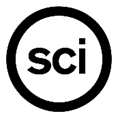Open Science
"Work, finish, publish."
Michael Faraday, 1874

"Open Science" image by Open Science is licensed under CC BY 2.0.
Open Science is an umbrella term for a set of many different concepts and practices that ensure the openness of the scientific process. It represents a new and modern way of conducting research and providing access to its results and research data. To strengthen scientific cooperation, new digital technologies and tools are being used.
Open science strives for the availability of scientific results that are reusable and for transparency at all stages of the scientific process, which is a huge contribution to scientific integrity. It strongly emphasizes collaboration, the principle of free sharing and reuse of all scientific outputs. At the same time, scientific information should be available throughout all phases of the research cycle, helping to share results more effectively.
The main attributes of open science are:
- Open Educational Resources
- Open Source
- Open Data
- Open Methodology
- Open Peer Review
- Open Access
The main pillars of open science are OPEN ACCESS to results and open access to research data – OPEN/FAIR data.
Other tools are for example Open Source, Open Educational Resources, Citizen Science, Open Peer Review, and Open Notebooks.
More information on Open Science can be found at: